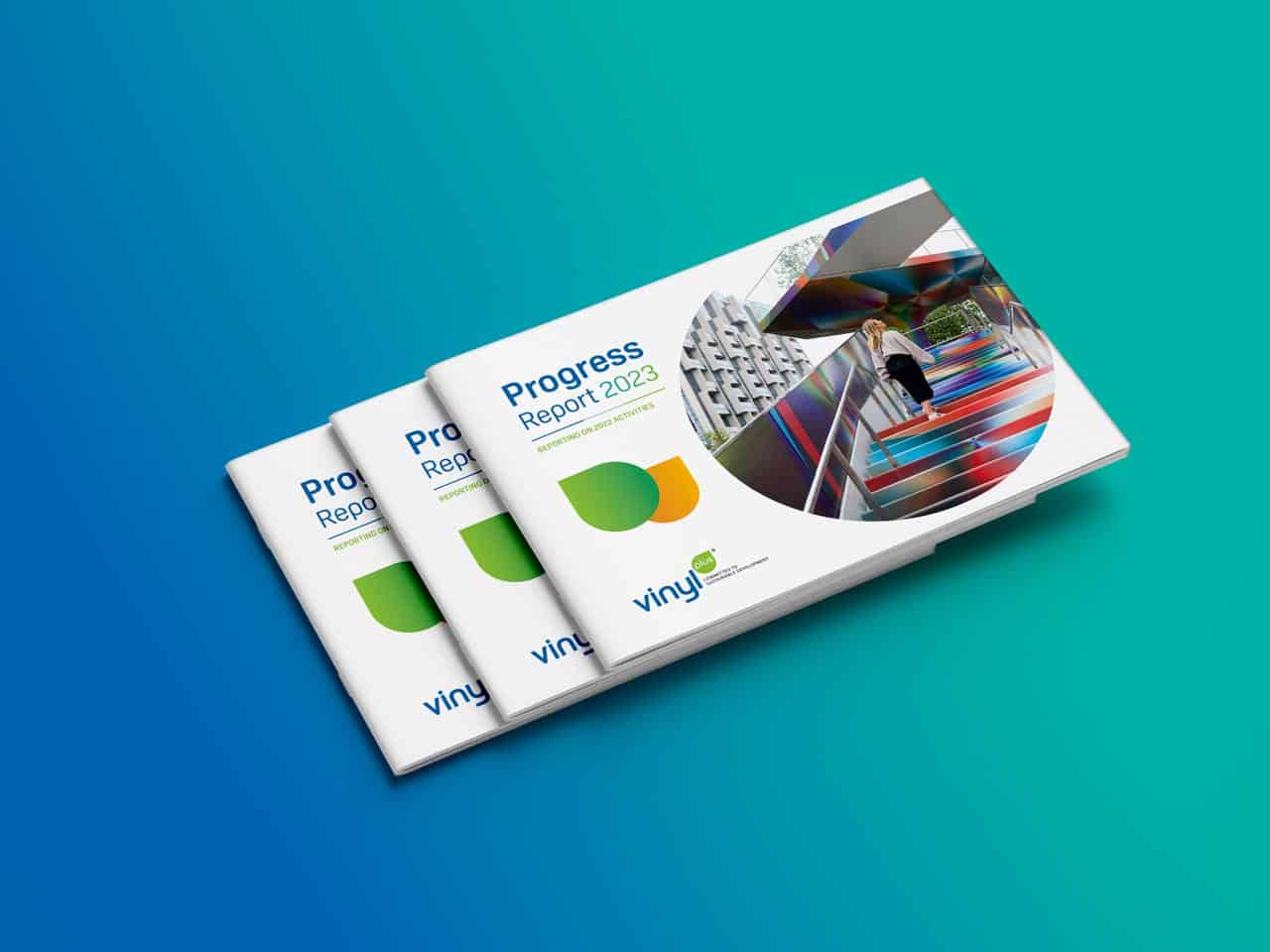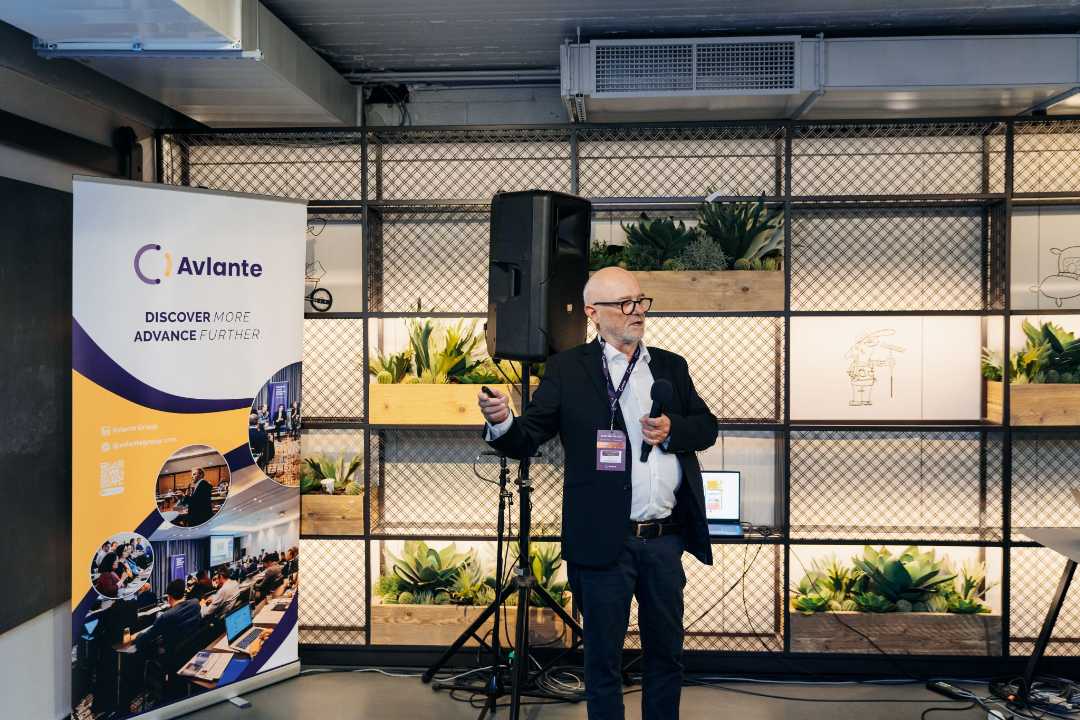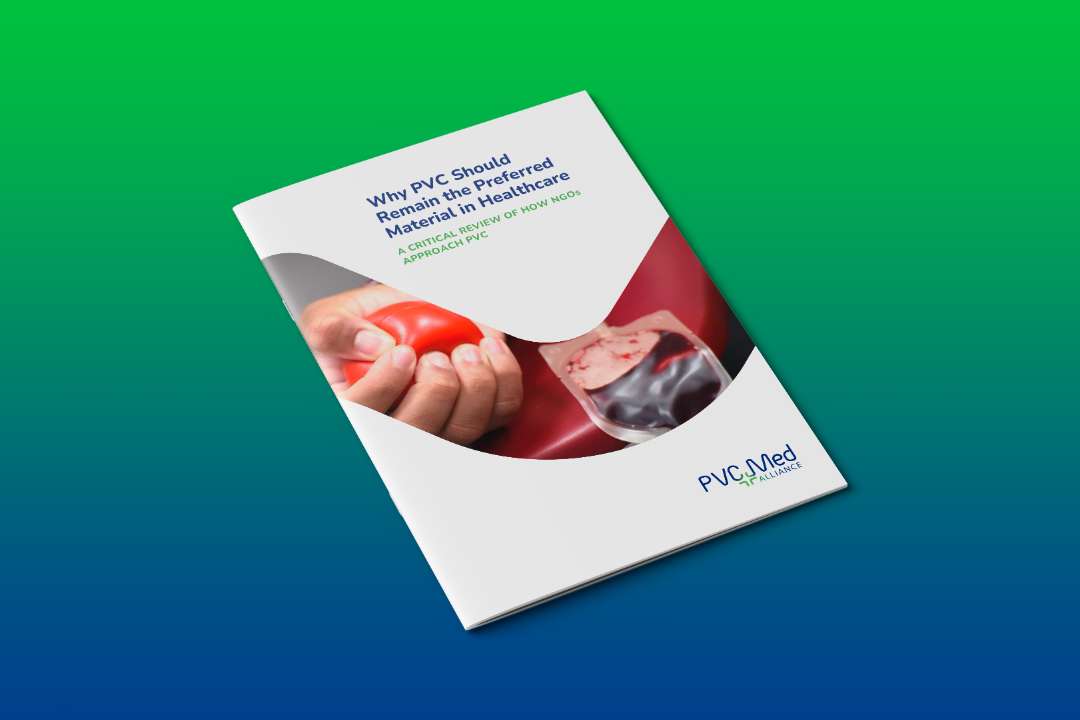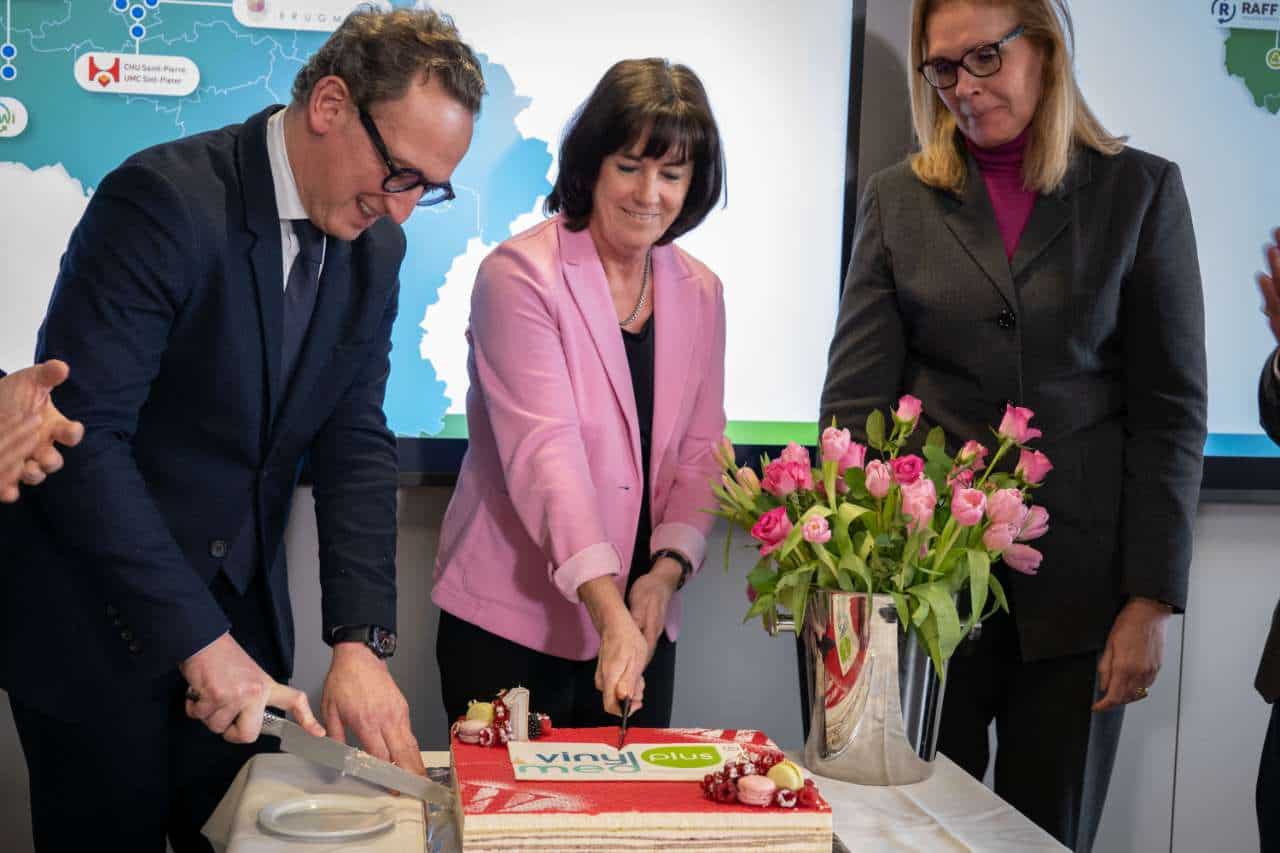
PVC goes full circle: From medical devices to hospital wall covering
13/02/2023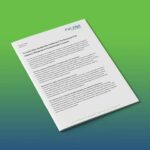
Towards More Sustainable Healthcare: The European PVC Industry’s Response to Environmental Concerns
05/06/2023VinylPlus® launched its Progress Report 2023 at the 11th VinylPlus Sustainability Forum (VSF2023). Under the theme ‘Making the EU Green Deal Happen’, more than 160 delegates from 21 countries gathered in Florence, Italy, to debate sustainable solutions towards carbon neutrality, circularity in the building and construction sector, developments in green procurement and sustainable product certifications.
Two years after the launch of its VinylPlus 2030 Commitment, the European PVC industry convened in Florence, Italy, on 11 May 2023. Stakeholders debated progress in sustainability and the circular economy and how to put in place concrete actions to make the EU Green Deal happen.
Opening the VSF2023, Karl-Martin Schellerer, Chairman of VinylPlus, highlighted the main progress and achievements of the European PVC industry in 2022, which are summarised in the VinylPlus Progress Report 2023.
2022 – A year with major milestones towards the 2030 sustainability commitment
In terms of circularity, 813,266 tonnes of PVC waste were recycled within the VinylPlus framework in 2022, representing around 27% of the total PVC waste generated during the year in the EU-27, Norway, Switzerland and the UK. Since 2000, 8.1 million tonnes of PVC have been recycled and reused in new products, preventing the release of 16.2 million tonnes of CO2 into the atmosphere. Heavy investments have been made in research and development projects aimed at removing legacy additives from waste and increasing chemical recycling of PVC waste that cannot be mechanically recycled in an eco-efficient manner.
As we tackle legacy additives, the industry is also looking to future-proof additives used today: a key tool to achieve this is the Additive Sustainability Footprint® methodology, which enables companies to proactively assess and promote the sustainable production and use of PVC additives throughout the entire product lifecycles. The methodology was shared with European PVC converters and presented at several events in Europe and abroad. VinylPlus’ vision is to broaden the use of the Additive Sustainability Footprint®.
Throughout 2022, VinylPlus also launched a series of initiatives aimed at supporting member companies’ efforts in reducing water and energy consumption, increasing the use of renewable energy and raw material, and minimising any accidental spillage of PVC into water and the environment.
The VinylPlus® Product Label, the sustainability certification for PVC products for the Building and Construction sector, was updated and included in the Italian GPP CAM (minimum environmental criteria). The Label’s criteria are currently under assessment by the Swiss organisation Ecobau. In addition, the first five companies have obtained the VinylPlus® Supplier Certificates, the sustainability certifications for additives suppliers and compounders.
Regulator and industry representatives exchange on state-of-play and future of PVC
Moderated by EurActiv’s Senior Editor Frédéric Simon, the first session of the VSF2023 focused on the upcoming European policy initiatives on plastics and PVC and the regulatory challenges of the EU legislative framework. Significant contributions to the debate, and inspiring perspectives, were provided by Francesco Virtuani, Circular Economy and Sustainable Development Division of the Ministry of Enterprises and Made in Italy; Paola Migliorini, Deputy Head of Unit, European Commission DG ENV; and Simone Doyle, Head of Risk Management Unit at the European Chemicals Agency (ECHA).
“The European Chemicals Agency’s objective" – observed Simone Doyle – "is to implement legislation to ensure the protection of human health and the environment and we look at chemicals more holistically, across lifecycles in a less fragmented way, also considering sustainability. The current investigation work on PVC and PVC additives, requested of ECHA by the EU Commission, gives us the opportunity to develop a framework to compare circular economy aspects of PVC and alternatives and their wider environmental impacts throughout the lifecycle. We hope this approach for PVC can be used in other impact assessments in the future.”
“VinylPlus is fully committed to supporting a rigorous, comprehensive, and science-based investigation process" – commented Brigitte Dero, Managing Director of VinylPlus – "to ensure the European PVC value chain a fair transition to a sustainable future. Our Forum 2023 shows that the European PVC industry can work jointly with policymakers and industry partners to address sustainability challenges. The recent publication of the REACH restriction on lead in PVC, for example, is the result of fruitful discussions between regulators, industry, and other stakeholders and builds upon the industry’s efforts to reduce the use of hazardous substances in PVC products and further enhance the circularity of the PVC industry. This regulatory measure will restrict the import of lead-containing PVC products from third countries where lead is still used as a stabiliser and will enable the PVC industry to meet its ambitious recycling targets in a way that is safe for human health and the environment.”
The event’s second session focused on accelerating circularity in building and construction. Discussions revolved around the Construction Product Regulation, currently under revision, and to the implementation of the Eco-Design for Sustainable Products Regulation, as well as architects’ and industry’s perspectives on how circularity in construction can be achieved.
In the last session of the Forum, speakers analysed the path towards sustainable development through certified and traceable products and the future of Green Public Procurement (GPP) in Europe. The contribution to more sustainable products for GPP provided by the VinylPlus® Product Label for PVC converters and the VinylPlus® Supplier Certificates for PVC additives suppliers and compounders is increasingly recognised by stakeholders. An award ceremony was dedicated to the companies that were certified in 2022: Akdeniz Chemson, Baerlocher, IKA, Polymer-Chemie, Reagens, Salamander and Sattler.
Closing the Forum, Karl-Martin Schellerer remarked: “I am very proud to announce that the PVC industry is on track to deliver the first targets of VinylPlus 2030. We are continuously working to improve our sustainability performance. Still, a clear and supportive regulatory framework is essential to set even more ambitious targets and continue to play a significant role in enabling the EU Green Deal. To this end, we are ready to work collaboratively and constructively with regulators in line with a science- and evidence-based approach. I am sure that the enthusiasm and the engagement of our partners seen during the VSF2023 will continue to contribute to the achievement of VinylPlus 2030 targets and to make the EU Green Deal happen."

